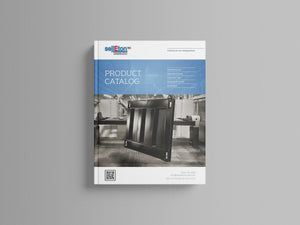When it comes to choosing the correct scale product, it could be quite challenging these days. A product could be weighed on many different types of scales. but, by simply getting a reading, it does not mean you have the correct scale setup. Also, With so many different brands, options & The E-Commerce market in place. How do you really choose the right scale?
CustomizedScales understands customers' needs & the simple fact that not everyone is a scale expert. Therefore, we have created a guide that you can use in order to distinguish the proper measurement device.
Questions you should get answers to:
1) What type of application are you going to use the scale for?
A) Precision
B) light duty
C) medium duty
D) heavy duty
E) Super duty
2) Are you purchasing this scale for a business?
if it is for business, are you going to put it in commercial use? in other words giving or accepting money based up on the weight.
if so, you will need an NTEP certified scale. Unless you are in these states ( TX, RI, ND, VT)
to learn about NTEP scales, please watch our video below:
https://www.youtube.com/watch?v=0JKYJKDLFNc
If it’s for non-commercial use. You can use a Non-NTEP scale. but in general NTEP scales are much more accurate vs. regular scales. reason being that NTEP or certified (Legal for Trade) scales have to match up to industry standards. Therefore; their frame structure, load cells, junction box & indicators are higher quality.
3) What is the correct platform size?
The general rule is that the item or product you are weighing should not hang over the scale platform. or touch any other surface. For example; in case of floor scales, many choose to use smaller size floor scales to save money. but the reality of the matter is that you can be overloading one side of the scale. which over time the load cell can decrease in accuracy or completely stop working.
In addition, in warehousing operations having a bigger floor scale is not a bad idea. It saves time for forklift operators in loading & unloading. Also, you decrease the chance of bumping into the floor scales as you will have better visibility.
4) Capacity & Accuracy
Now this one of the most important aspects of choosing the correct scale. As you don’t want to max out or get close to capacity of the scale all the time. you want the scale to have enough room to be able to weigh with best accuracy, with-out putting the load cell or load cells under stress.
Imagine this; if a scale has 100 lbs capacity & everyday you are weighing items that are 90 lbs. it may work great for some time but in the long run it can give you errors in reading & not stay accurate. as you are pushing the load cells or load cells to close to max capacity.
5) Indoor scale vs. outdoor scales
If you are going to use a scale indoors, going with an LED or LCD displays are both fine. but for outdoor scales LCD is the best choice as LED is hard to see in bright or sun light. unless it is strictly used at night.
Also, if your going to leave a scale outside, then you have to make sure it is equipped with Stainless Steel load cells, water resistant junction box & Stainless Steel indicator.
Furthermore, humidity or rust could cause a scale to give errors in reading. That is why Stainless Steel upgrades are recommended for outdoors scales.
These are few tips to keep in mind when buying a scale. You may contact us direct if you wish to speak with one of our scale experts!


